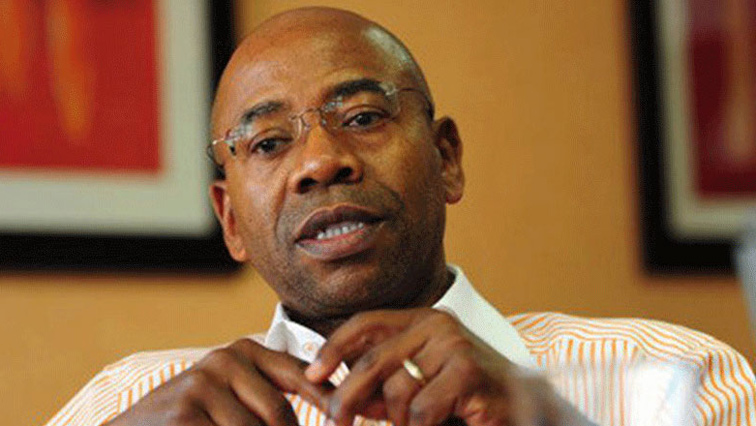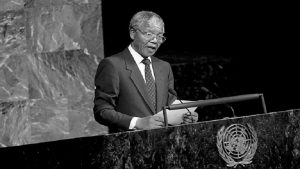Every budget presents us with new challenges and fresh hopes. The October 2018 Medium Term Budget Policy Statement (MTBPS) statement is no exception – but with a difference: The South African economy is in a technical recession, evidenced by two successive quarters of negative growth.
The sharp downward turn is in stark contrast to the optimism offered in the February 2018 budget proposal. Against a grim picture of South Africa’s public finances in the 2017 Medium Term Budget Policy Statement – a R50-billion shortfall in tax revenue and a budget deficit of 4.3% debt to GDP ratio- the emphasis of the February budget on fiscal consolidation was the right antidote. Since the advent of the 2008-2009 global financial crisis, the government has not been able to raise enough revenue to fund its planned programmes and has opted for foreign borrowing. Having recognised an increasing gross national debt as a share of GDP, the February budget prioritised tackling excessive public deficits by increasing Value Added Tax (VAT) for the first time in over two decades – a tax applied to most items consumers buy – from 14% to 15%.
In no small measure, a stable transition to a new government headed by President Cyril Ramaphosa, prudent fiscal, monetary, and financial policies, and the stimulus measures announced in Ramaphosa’s stimulus package to address the country’s growth and employment challenges provided hope that pressure on public finances will be reduced by the state being better managed.
But there the optimism has dissolved in a quagmire of deep uncertainties about the future of the economy. When social partners met at the Jobs Summit early this month, discussions were informed by a backdrop of developing challenges posed by the downturn in the South African economy. Much of the anxiety has coincided with the impact on key trading partners, particularly the emerging markets contagion, the substantial downside risks in advanced economies, including the financial stress caused by rising protectionism in the United States as the Trump administration rallies against emerging and developing market exports.
In per capita terms, the South African economy has deteriorated, providing no additional income that could help reduce poverty. The official unemployment rate has worsened from 27.7 percent in the third quarter of 2017. This is exacerbated by a decline in the labour force participation rate from 59.9 percent to 58.8 percent this year.
This means that the fiscal consolidation exercise is not reaping the full benefits accruing from several advantages of spending cuts, as projected by budget statement in February.
On the revenue side, these developments reflect several challenges that South Africa faces over the next few years. The difficulties can in part be attributed to the absence of a clear and credible implementation plan to stimulate growth, reduce policy uncertainty and strengthen the social compact on which the government plans to build consensus with business, labour and civil society. In effect, this means rolling out tangible projects that attract investment and help improve the poor’s access to jobs so that they can fully participate in the economy.
The October 2018 MTBPS is an opportune time for a concerted effort to overcome obstacles to a more inclusive growth path. In its barest form, President Ramaphosa’s stimulus package promises to “stabilise” debt levels through a range of interventions including reducing the speed at which national debt increases relative to the size of the economy and a reprioritisation of expenditure towards high impact sectors. In business’s view, the cost of debt servicing is crowding out pro-growth expenditures while raising mandatory recurrent spending.
A critical area to address is the Public Service wage Bill, which has consistently exceeded projections in its growth. The proposed rationalisation of ministries and departments by Ramaphosa is a small but critical part, but the bigger challenge is the overall size and cost of our public service. Moderating wage increases, reallocating or discontinuing redundant posts and other measures before we reach the uncomfortable stage of having to downsize or right-size sections of the public sector is a critical priority.
These are unpalatable truths to discuss in the run-up to the 2019 election, but one of the benefits of the current positive sentiment is that the space can be used to drive through unpopular but necessary measures.
But that is only one crucial issue. Fiscal consolidation, if not carefully thought through, could result in unintended consequences such as exacerbating slow economic growth or delaying its recovery. The fruitful mix between tax increases, spending cuts and investment is central to the design of smart fiscal consolidation. Tax increases in themselves can’t solve for revenue shortfalls. Their allocation ought to be incentive-driven, based on the extent to which the return on taxation contributes to a widening of the revenue base. The MTBPS must therefore identify consolidation measures that are growth-promoting. That means a combination of efforts that can produce an essential lift to our economy.
A signature achievement in this regard is the efforts and contribution of the Presidency to strengthening stakeholder cooperation, notably through implementing initiatives related to priority areas such as infrastructure and “shovel-ready” projects.
We welcome these commitments within the framework of the stimulus plan, and in this regard draw satisfaction from the fruitful results of the partnership through multi-stakeholder initiatives such as the Jobs summit and the forthcoming investment conference.
We reiterate the view of business at the Jobs summit that greater clarity is needed on the R400 billion infrastructure spend plan to assist us in taking forward our growth agenda. Infrastructure spending has been a key driver of growth over the past decade and, along with sound financial regulations, shielded South Africa from the worst effects of the recession. Fixing State Owned Enterprise to drive infrastructure investment in energy, transport, water, ICT and other productive sectors which currently impede our competitiveness in the broader global landscape is of paramount importance. Land question should be urgently resolved, guaranteeing property rights.
Many more commitments have been made — but as always, delivery must be pulled forward. Whether measures announced by newly appointed finance minister Tito Mboweni will help reduce debt and take forward the commitments by Ramaphosa in his stimulus package remains to be seen.
Bonang Mohale is the CEO of Business Leadership South Africa (BLSA)






